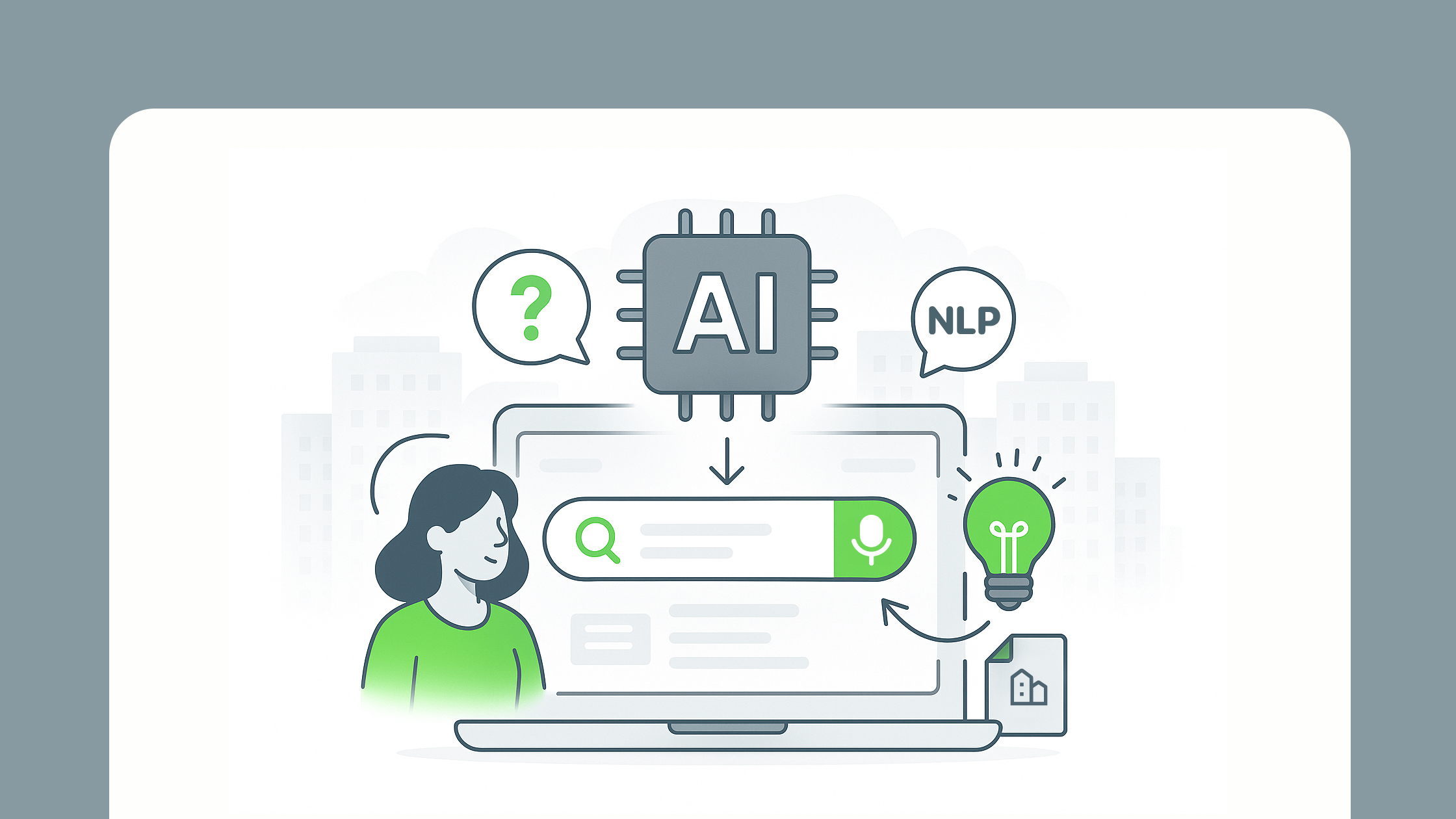 AI Search for Property Managers: Ask, Get Answers
AI Search for Property Managers: Ask, Get Answers
As a property manager, have you ever felt buried under an avalanche of data? You know the answer to a question about a booking, a guest, or a rental is somewhere in your property management system , but actually finding it feels like a treasure hunt without a map. You click through menus, open endless reports, or try different keyword combinations, only to waste precious time you don’t have. It’s frustrating when your system has the information, but it’s just not easy to get to.
This common headache comes from how traditional search functions within many property management systems. They usually rely on you knowing the exact field or report where information is stored or using precise keywords that match the system’s logic. If you don’t use the perfect term, or if the information is spread across different modules, you’re stuck. But there’s a powerful new solution emerging: AI search. This technology isn’t just for general web searches; it’s transforming how property managers interact with their own data, moving beyond simple keyword matching to direct, intuitive answers.
The Old Way: Why Keywords Don’t Always Work in Property Management
For years, getting data out of a Property management system meant navigating a very structured world. You’d go to the “Bookings” tab, then filter by date, then by guest name. If you needed to see all maintenance requests for a specific unit, you’d open the “Maintenance” module and sort through a list. This works, but it’s not always fast or intuitive.
The limitation here is that traditional search within these systems is often rigid.
- It expects you to know exactly where the information lives.
- It struggles with broader questions that span different data points.
For instance, if you wanted to know “How many guests who also had a special request for a crib stayed at any of my seaside properties in August?” a traditional search would make you jump through multiple hoops.
You’d probably have to pull a guest report, then cross-reference it with booking dates, then filter by property type, and finally, look for specific notes. This fragmented approach means valuable insights are often hidden, simply because getting to them is too time-consuming.
AI Search: It Understands What You Mean in Your PMS
This is where AI search steps in and completely changes the game for property managers. Unlike older search functions, AI search isn’t just scanning for exact keywords; it’s actively working to understand the meaning behind your questions. This profound shift is powered by advanced artificial intelligence technologies designed to mimic human comprehension.
How AI Gets It: Natural Language and Constant Learning
At the core of AI search in a Property management system lies Natural Language Processing (NLP).
- This technology lets the system understand plain, everyday language—the same way you’d talk to a team member. It interprets complete phrases and sentences, grasps the relationships between words, and even picks up on subtle intentions.
- So, when you ask, “Show me all bookings for John Doe in October,” the AI understands you’re looking for specific reservation details, not just any mention of “John Doe.” This means you can use a natural language search, speaking or typing as you normally would, and the system will grasp your intent. No more memorizing specific commands or keywords.
Beyond understanding, AI search also utilizes machine learning (ML).
- This powerful component allows the AI to learn and improve with every interaction.
- The more property managers use the system to ask questions, the smarter it gets at anticipating needs and delivering precise information.
- If many users frequently ask about the “average duration of stay for repeat guests,” the AI learns to prioritize and quickly summarize that kind of data.
This continuous learning not only makes results more accurate but also allows for a highly personalized experience, tailoring information retrieval to your specific operational needs and common queries.
Because of these capabilities, AI search within a Property management system aims to provide direct, concise answers. It doesn’t just return a long list of reports or unorganized data. Instead, it processes information from across your entire property management system, synthesizes it, and presents you with the most relevant answer, often summarized for quick review.
Get Real Answers: What AI Search Can Do for You
With AI search, you can truly “ask” your questions and expect direct responses. This intuitive interaction transforms how we find specific information, especially in detailed fields like property management. It’s a prime example of how AI search answers questions more effectively than traditional methods.
The AI system understands your conversational request and quickly pulls up the exact booking details. Or, if you need to analyze business performance, you could ask, “What’s the average occupancy for a certain Property last quarter?” AdvanceCM’s AI search processes this complex query and provides the precise occupancy rate directly.
This ability to understand nuanced questions extends across various aspects of property management. You might ask:
- “List all overdue invoices from the last two weeks.”
- “Which guests stayed at Property B more than three times?”
- “Find all rentals available next summer that have a pool.”
- “What’s the total revenue from Studio Apartment 3A in first quarter?”
Instead of manually sifting through reports or databases, the AI swiftly provides the relevant data or summary. This doesn’t just save time; it empowers property managers to make quicker, more informed decisions. It makes accessing information about your bookings, guests, and rentals incredibly easy and instantaneous.
The Future is Conversational: What’s Next for AI Search?
The journey of AI search is just beginning, and its future promises even more seamless and intuitive interactions. Because AI models are constantly learning from new data and user interactions, their ability to understand and respond will only continue to improve. We can expect AI search to become even more predictive, sometimes anticipating what you might need before you even fully formulate your query.
This evolution is leading us towards deeply integrated AI experiences across our digital lives.
- From smart home devices that can answer complex questions about your calendar to enterprise tools that summarize vast amounts of company data on demand, AI-powered search will become an indispensable assistant.
- The focus will remain on refining the user experience, making information retrieval less of a “search” and more of a direct conversation.
However, as AI search becomes more powerful and integrated, it also brings important discussions about ethical considerations.
- Questions around data privacy, potential biases in AI models, and the transparency of how results are generated become increasingly relevant.
- Ensuring that AI search systems are fair, unbiased, and respectful of user data is crucial for building trust and ensuring their long-term benefit.
Property Management Systems like AdvanceCM are focused on building AI tools responsibly, prioritizing user control and clear data practices.
AI search marks a significant milestone in how we interact with information. It shifts the paradigm from endlessly clicking links to simply asking questions and getting direct, intelligent answers. This transformation empowers users with speed, accuracy, and an intuitive experience that feels more like a conversation with a knowledgeable assistant. At Tokeet, we’re harnessing this power with AdvanceCM, revolutionizing how businesses access and leverage data.
Get precise answers instantly—try AdvanceCM today.




